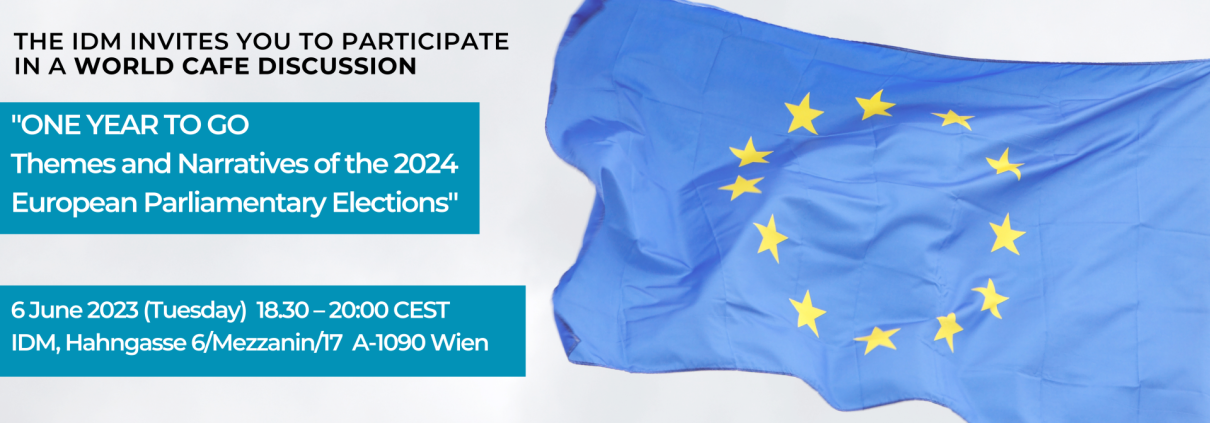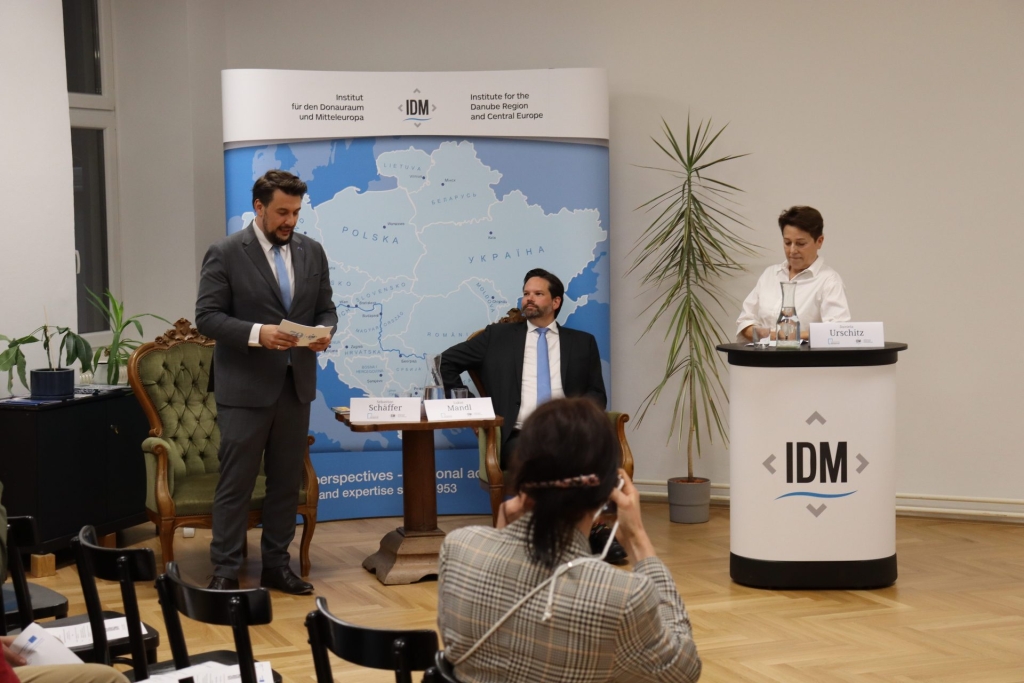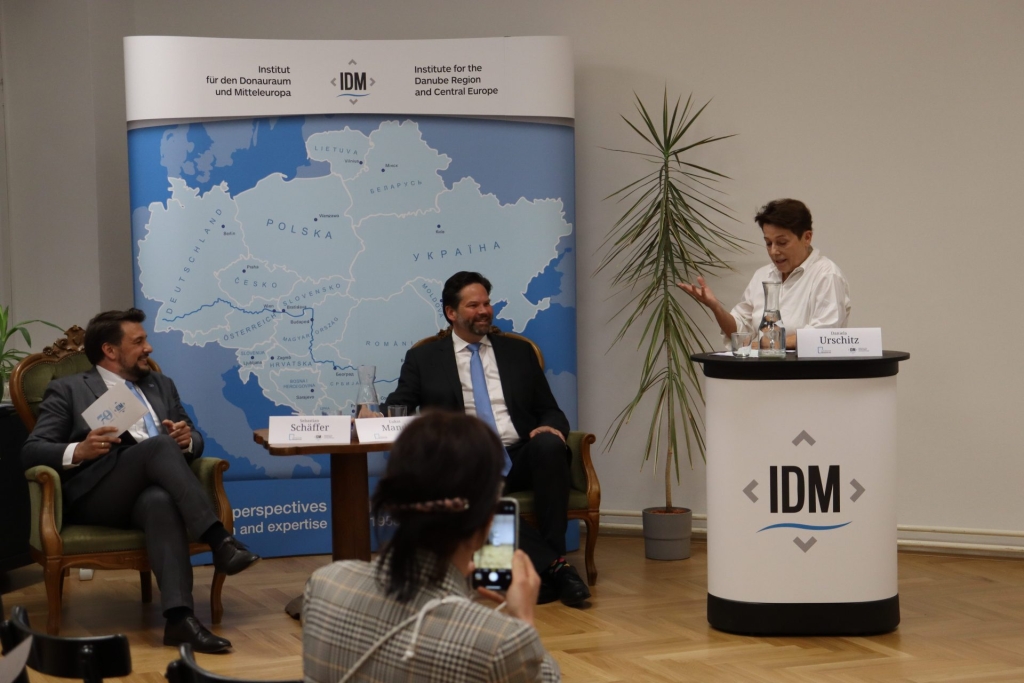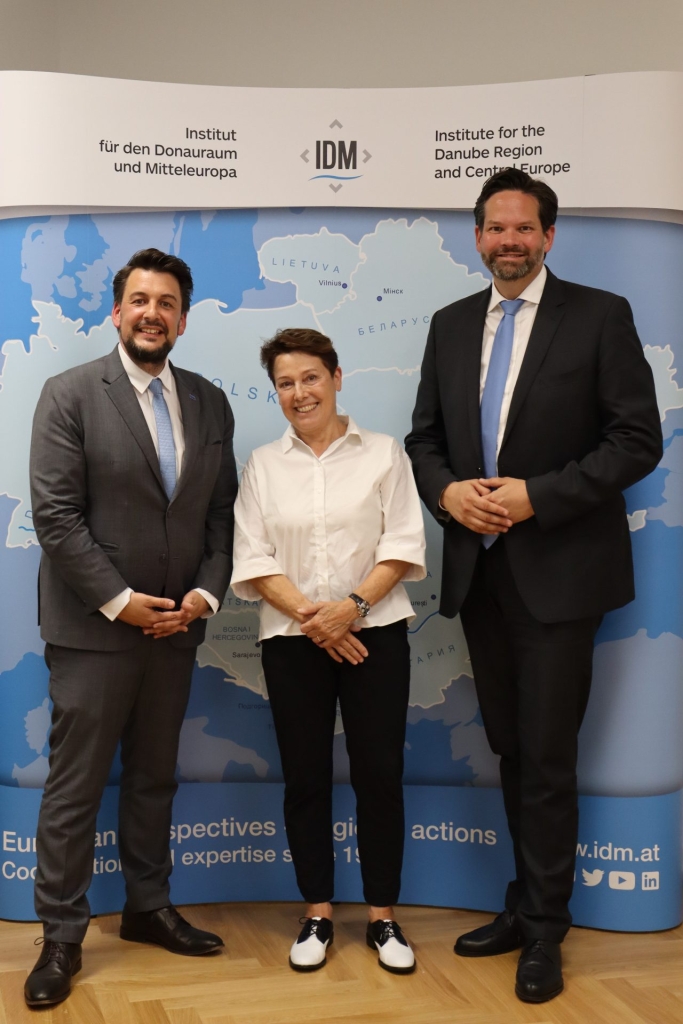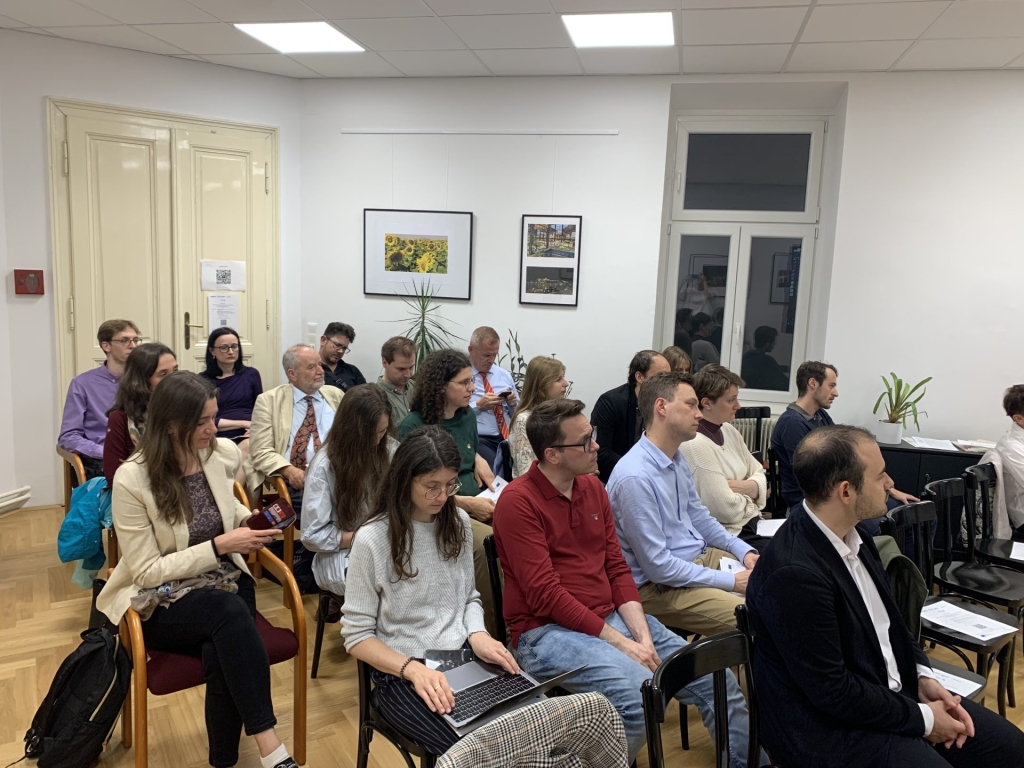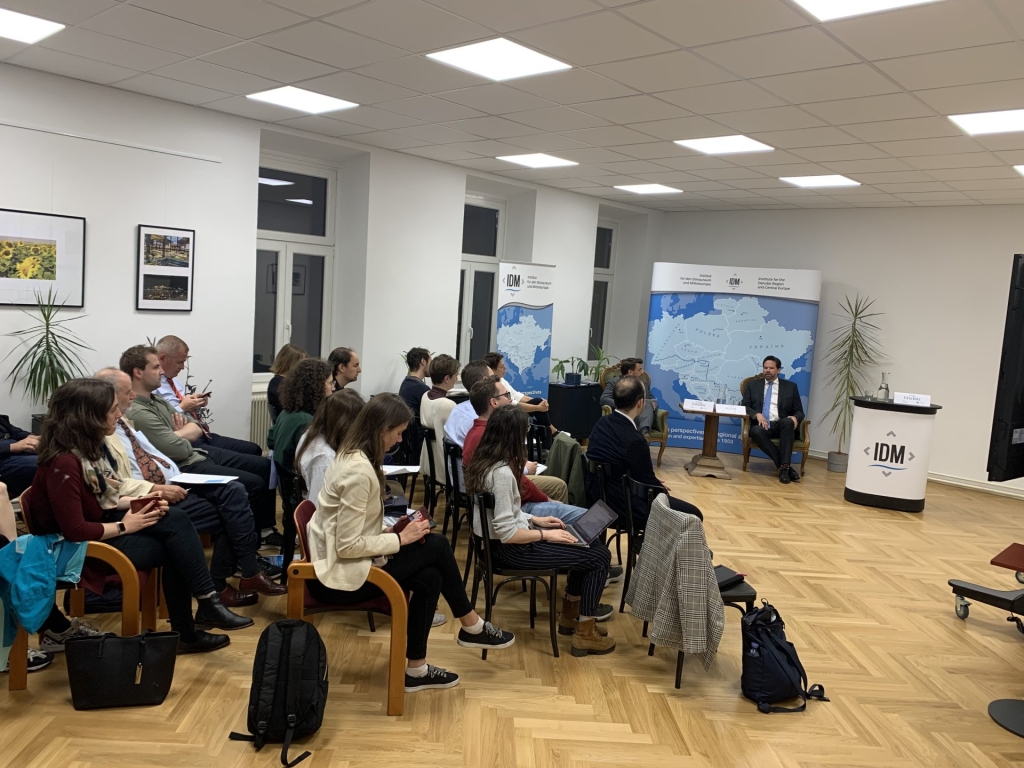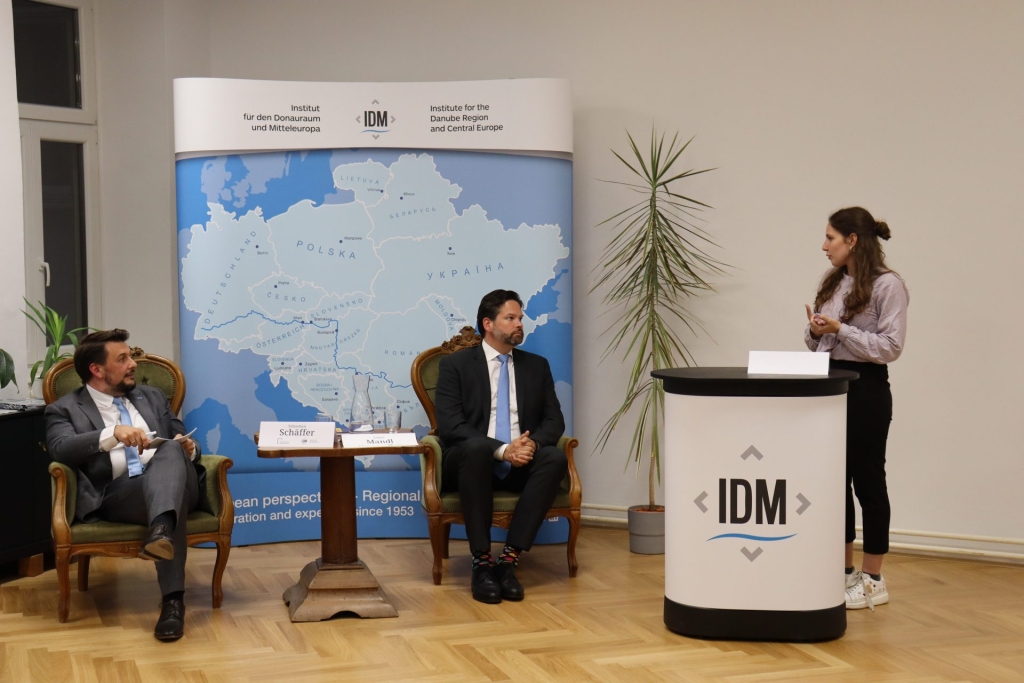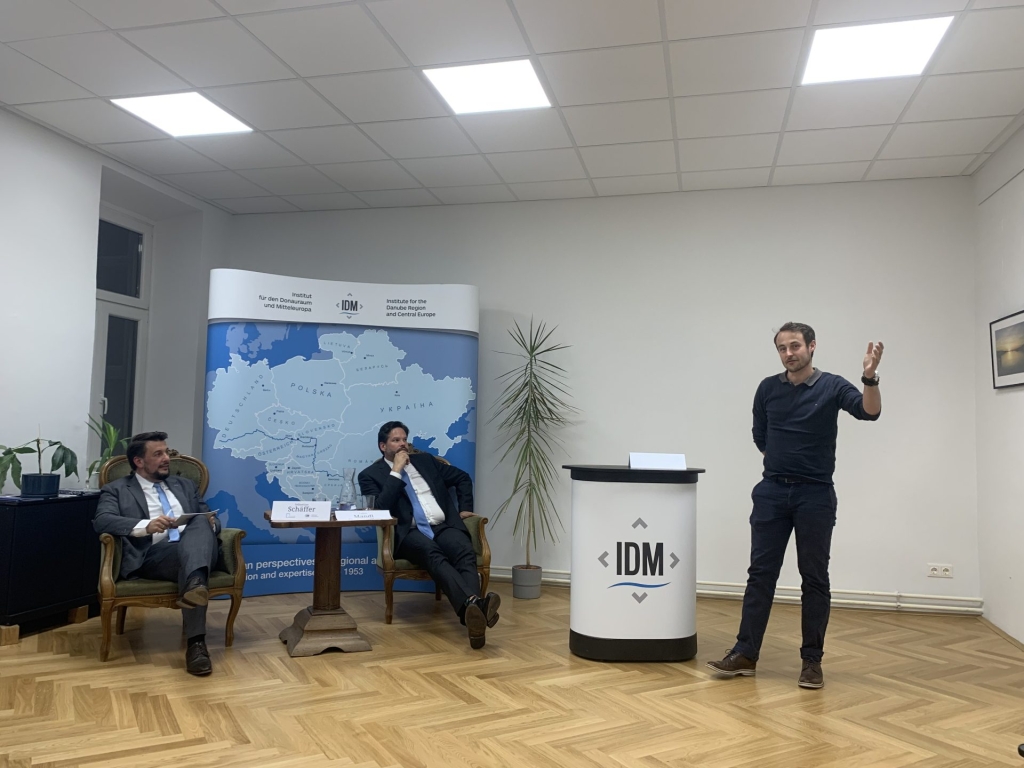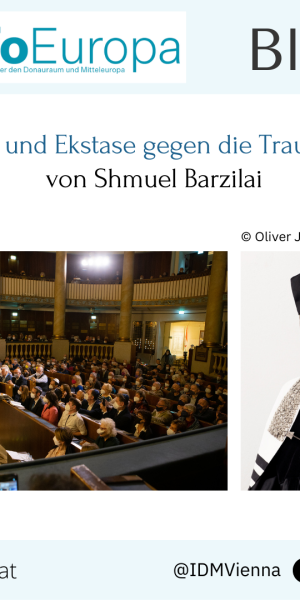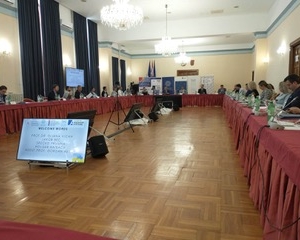ONE YEAR TO GO European Parliamentary Elections 2024: What Themes and Narratives?
From 6 to 9 June 2024, the upcoming European Parliamentary elections will be held. Precisely one year prior to these, the IDM organized a thought-provoking discussion at its premises in Vienna. The debate featured three distinguished Members of the European Parliament: Vladimir Bilcik from Slovakia, Marketa Gregorova from Czechia and Lukas Mandl from Austria. In this Slavkov format, the discussion revolved around the central themes and narratives expected to shape the upcoming EP elections, emphasizing the crucial role of citizens’ engagement and turnout.
The elections in 2024 will be critical for the future of the European Union as they will set the agenda for the years to come. In her opening address, IDM board member Daniela Urschitz highlighted the current state of affairs, stating:
“Since almost a generation the EU has been facing a situation of polycrisis. The population of the EU is living in a period of great uncertainty and transformation, while at the same time a growing group of citizens is feeling left behind by their national governments and even more so by the faceless far away ruler, the European Union.”
The upcoming EU elections will be influenced by a range of common topics across Austria, Slovakia and Czechia. Key issues that will shape the elections include the ongoing Russian war in Ukraine, foreign and security policy issues, migratory issues, and the European Green Deal. Additionally, so-called “Bread-and-butter issues,” such as inflation, which directly impact the daily lives of EU citizens, will hold significant relevance.
Among the threats facing these elections is the rise of populism and the prevalence of disinformation campaigns. Numerous countries have already witnessed such campaigns, particularly in relation to the war in Ukraine. It is crucial to provide a joint European response to effectively counter disinformation. Vladimir Bilcik said:
“Major disinformation campaigns should not spread at the expense of verified information and here only European legislation and rules can make a difference.”
In this context, the debate also touched upon the controversial planned EU legislation, called Defence of Democracy Package that would require non-governmental groups and academic institutions to disclose any non-EU funding they receive.
Despite the significant importance of the elections for the future of the European Union, voter turnout has been very low, particularly in Central and Eastern European countries. In the 2019 EP elections, Slovakia recorded the lowest turnout in the EU, with only 23%, while Czechia followed closely with 29%. Therefore, it becomes imperative to prioritize efforts to enhance citizen participation and motivate voters for the upcoming European elections.
According to Lukas Mandl, a key strategy lies in active leadership and engagement. “It is crucial to talk to people, be active and responsive especially in times of crisis, be physically present.” Looking ahead, Marketa Gregorova hopes for a generational shift:
“Youth is low in turnout when they are young, but they are very interested in the EU. Once they grow into the age when they are more prone to vote, we will hopefully see the fruits of what we are trying to do now here.”
These were some of the findings of the small scale debate “ONE YEAR TO GO European Parliamentary Elections 2024: What Themes and Narratives?” held at the IDM in Vienna on the 6 June 2023. The discussion was moderated by managing director Sebastian Schäffer. It was implemented within the project EUact2-“Towards Democratic and Inclusive Europe: EP Elections and Active Citizens Participation and Contribution” funded by the European Union.

To watch the whole discussion, go to IDM YouTube channel or click here.

